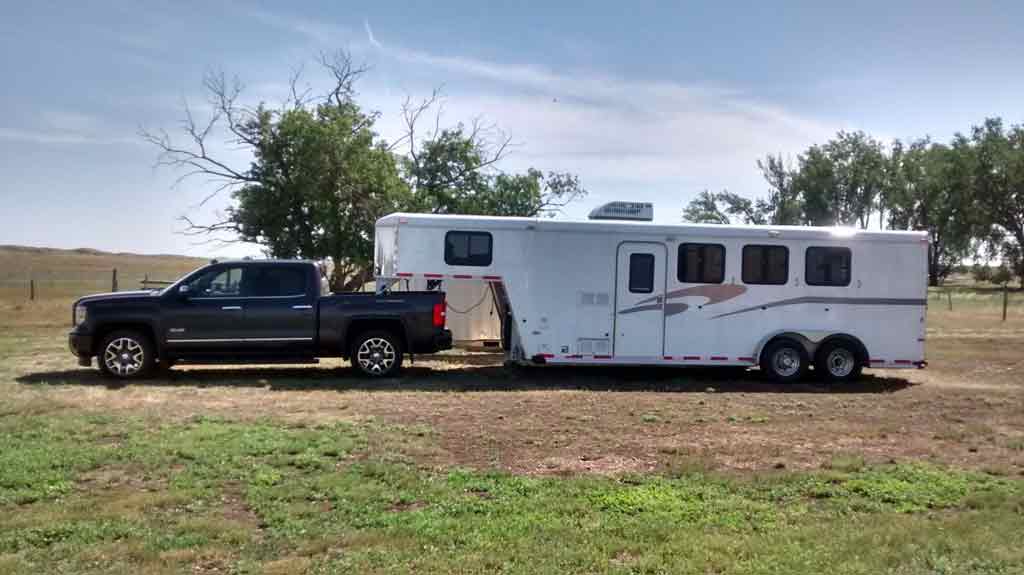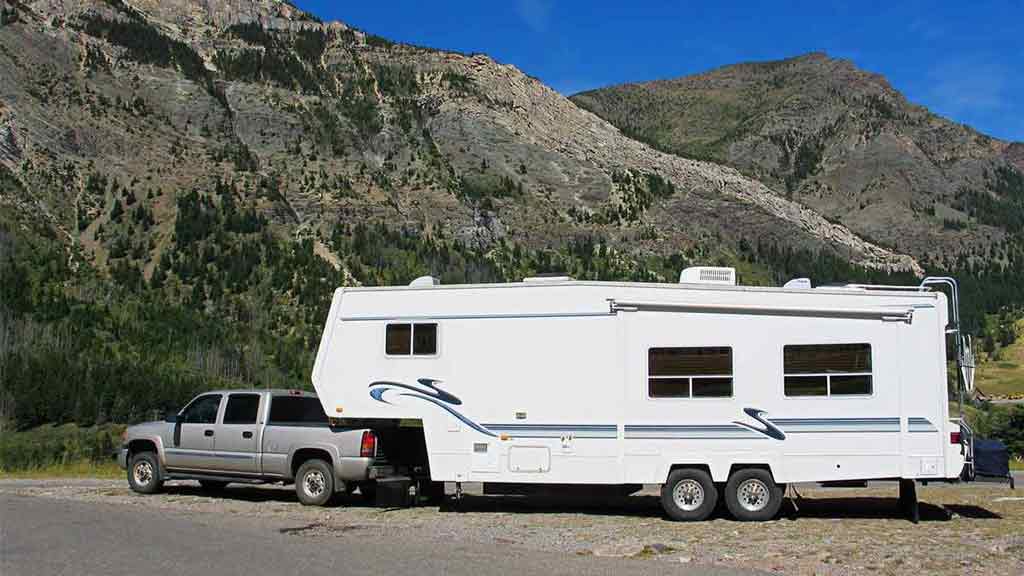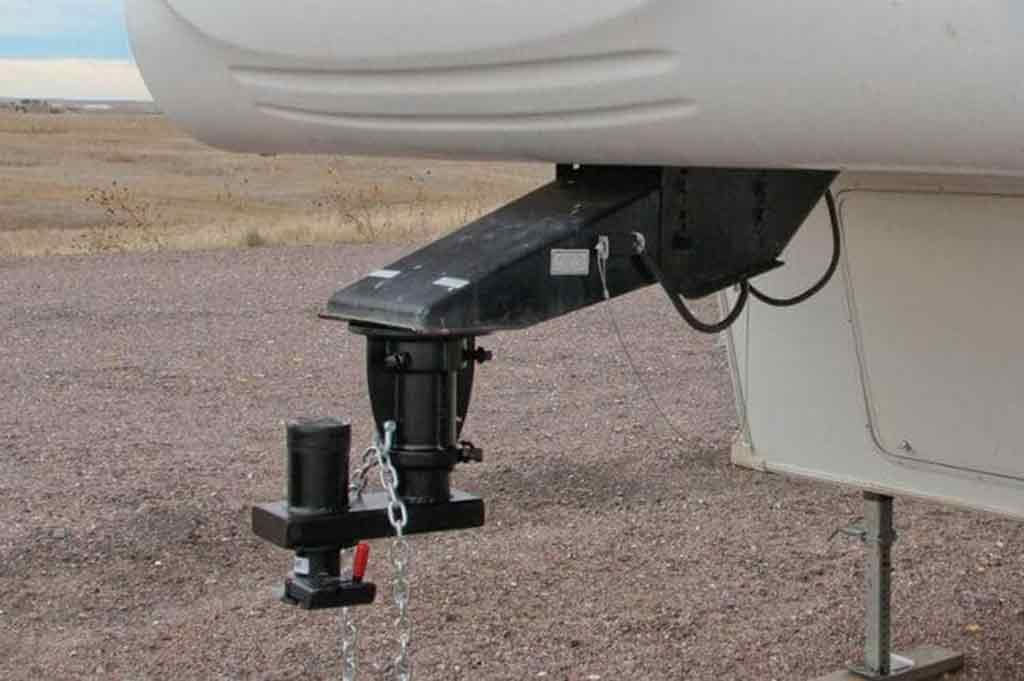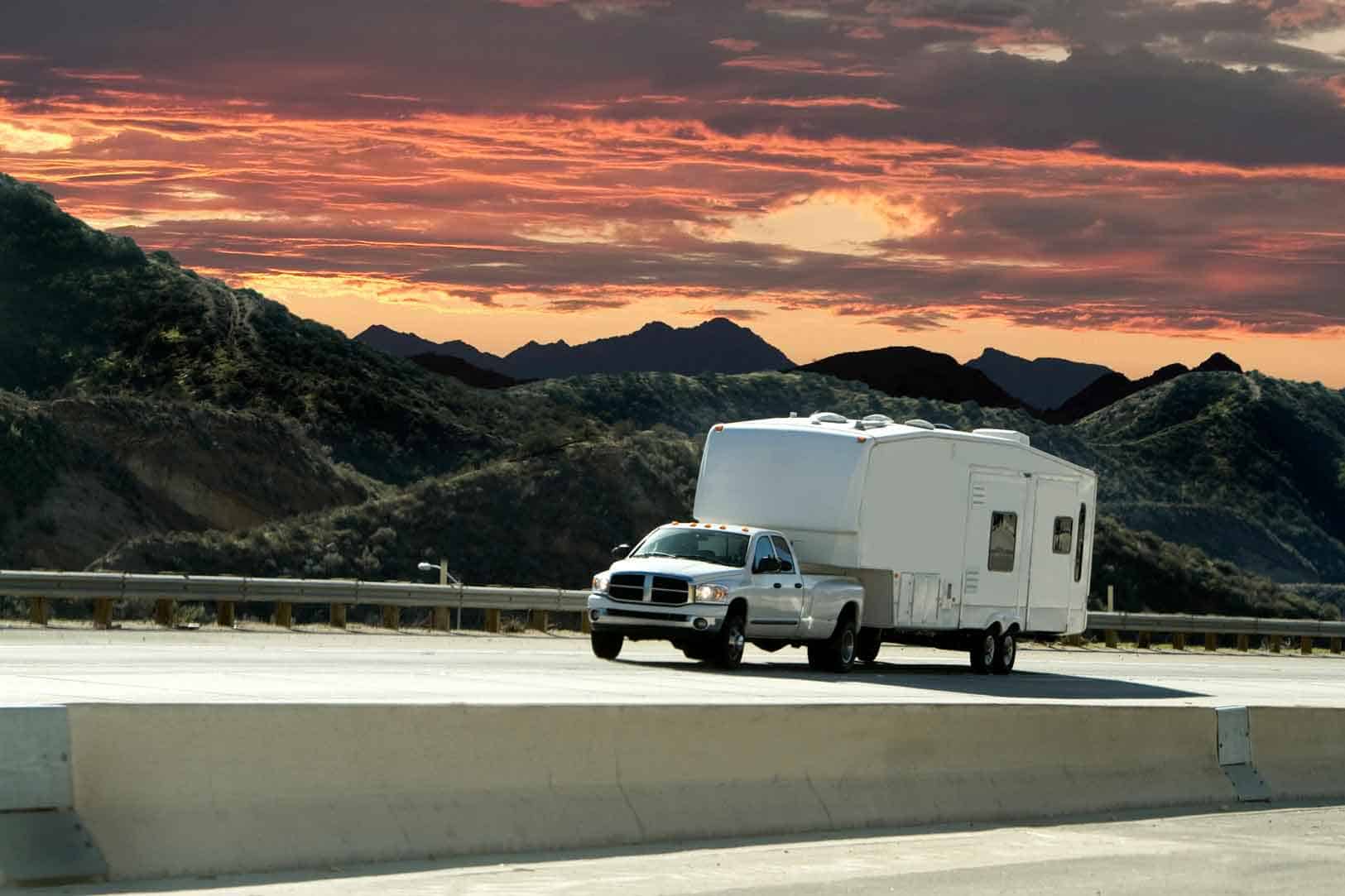Both gooseneck and 5th wheel hitches do the same thing. They are truck hitches designed to carry large loads, mainly trailers. Many people find using one over the other to be more of a matter of preference than anything else. However, despite doing the same thing, i.e., hitching of trailers, there are a handful of differences between gooseneck vs 5th wheel.
Both hitch types are used to tow vehicles. If you want to pull that big camper or trailer behind your truck, you need one of these hitches. In general, these hitches require a separate truck bed that can carry the weight of the trailer, its cargo, and its occupants.
Let’s explore the difference between gooseneck and 5th wheel.
Gooseneck vs 5th Wheel Hitches: The Main Differences
The primary difference between 5th wheel vs gooseneck is their mounting systems. While a gooseneck requires mounting directly to the frame of your vehicle, a fifth wheel hitch mounts onto a special adapter plate that is secured to the frame of your vehicle.
The significant differences between gooseneck vs 5th wheel you can find are:
Installation
If you compare the structure and installation process between 5th wheel hitch vs gooseneck, you will find them quite different.
Gooseneck hitches have a ball hitch that is mounted on a frame rail attached to the bed of your truck. The trailer tongue has a round receiver, and the ball hitch fits inside that round head. Of course, the installation also requires connecting safety chains and trailer wiring.
Fifth wheel hitches for short bed trucks are very similar to goosenecks except for one detail: they have a horseshoe-shaped coupling mechanism rather than a ball hitch. It’s set on a base that is attached to an under-bed mounting system.
The trailer tongue for this hitch is a diagonal metal beam with a bottom kingpin. The pin will slot into the hitch with a little back and forth of the truck.
Space on the Truck Bed
So, comparing gooseneck vs 5th wheel, it’s clear that the second one requires a unique mount system in the truck’s bed. On the other hand, gooseneck hitches are installed on top of the bed’s rails.
A gooseneck hitch is easier to remove and takes very little space on the truck bed. It means that even if you leave it on the truck bed, it will leave space for storing other things. Also, it won’t weigh down your tow vehicle.
On the other hand, a fifth wheel hitch occupies considerable space on the truck bed. It’s kind of a permanent fixture because you can only remove the U-shaped assembly, leaving the rails with the base mounting system. And that base assembly can weigh down the truck by 100 pounds.

GM-Trucks
Compatibility
A gooseneck hitch requires a hole cut into the truck bed (the ball sits in this hole), whereas the fifth wheel hitch mounts to the truck bed using heavy-duty brackets (requires only a few holes drilled into it).
Gooseneck hitches are typically installed by a professional (DIY installation requires proper skills and tools). In contrast, fifth wheel hitches can be done at home with some elbow grease and patient friends.
Height Clearance
If you have a short box truck, then your best bet is going to be a fifth wheel hitch because of its lower profile. If you have a long box truck, you have more flexibility in choosing which type of hitch works best for your application.
A gooseneck hitch needs at least 6 inches of trailer clearance. The height should be measured from the highest point of the tailgate and truck side and the lowest point of the gooseneck’s frame.
Towing Capacity
If you care about towing capacity, then gooseneck hitches are for you. They can handle about 30,000 pounds of weight, and some models can go well over that threshold.
The maximum pulling weight a fifth wheel hitch can handle is 27,000 pounds. However, the handling capacity of most of these hitches is even lower.
So, the gooseneck is the way to go for extra hauling strength.
Trailer Type
Pulling a fifth wheel with a gooseneck hitch is the best option. The heavier the trailer, the better this hitch performs. You can also use it for pulling commercial, agricultural, horse, and other heavyweight trailers.
It allows for better weight distribution than a fifth wheel or bumper pull hitch, so it can be used with heavier loads.
Fifth wheel hitches are designed for use with recreational vehicles (RVs). They can also be used with travel trailers, utility trailers, car haulers, and boats. They can also haul mid-size 5th wheelers that have a kingpin on the tongue.
Road Performance
If you care more about road performance, then you should go with fifth wheel hitches. They connect at the center of the truck bed, so your trailer will have less sway as you drive down the road. With all that weight centered in your truck bed, you’ll also be less likely to bottom out when going over bumps or dips in the road.
A fifth wheel hitch offers a smoother and quieter operation, but a gooseneck gives the total opposite experience. When you are towing a tall trailer, the stability issue of the gooseneck hitch will be too evident.

Price
The gooseneck is the clear winner in this case. It’s a cheaper option because of its less complicated structure and installation process.
On the other hand, a fifth wheel hitch is around four times more expensive than a gooseneck hitch. However, it’s still the best choice if you have a recreational vehicle or a small trailer.
Fifth Wheel to Gooseneck Conversion
One glaring difference between gooseneck vs 5th wheel is that you can convert 5th wheel to gooseneck.
So, if you have a gooseneck hitch on the truck bed but want to pull a fifth wheeler, you can easily convert the hitch type without much modification. All you need is an adapter, and it’ll do the job without putting stress on the trailer or hitch.
Some adapters connect to the ball of the hitch, while others go into the hole in the truck bed.
So, if you have a gooseneck truck but want to convert it to a fifth wheel, you can do that easily. There are various types of adapters in the market that offer a very secure connection between your trailer and the towing vehicle.
A fifth wheel to gooseneck hitch gives you better performance without modifying your trailer. You can also switch between trailers just by installing or removing the adapter. But you must find one that is compatible with your trailer’s kingpin.
A fifth wheel hitch gives your trailer more stability and makes it easier to tow heavy things. It makes the connection between the truck and trailer stronger, so there’s less wobble when you’re driving down the road. Also, you can easily remove the adapter when loading cargo on your truck bed. So, it makes sense if you want a gooseneck 5th wheel hitch without changing the current setup on your truck bed.

5th wheel to gooseneck adapter: Pros & Cons
Like everything else, the 5th wheel to gooseneck adapter comes with its unique benefits and downsides. Let’s go through some of them, so you can decide whether you want to spend money on an adapter:
Pros
- Creates a secure connection
- Easy to install and remove
- Does not require extra modification
- There are many affordable options
Cons
- Takes up plenty of truck bed space
- Some models can put stress on the kingpin
Gooseneck vs 5th Wheel Hitch: Which One Shall You Get?
The detailed gooseneck vs 5th wheel comparison should have helped you with assessing the features and functions of both hitch types. Since they cater to different trailer types and categories, it’s easy to make a purchase decision.
A gooseneck could be the right option if you have a heavy-duty commercial trailer. But if you have a large RV and prefer the gooseneck version for its lower weight, taking less space on the truck bed, and other advantages, go for it. After all, you can convert it easily for a fifth wheel trailer without much hassle.
However, a towing vehicle with a fifth wheel hitch is more desirable for stability and better road performance. When you have a long trailer for RV-ing, you won’t want to experience a bumpy ride. In that case, a 5th wheel hitch should be your first choice.

